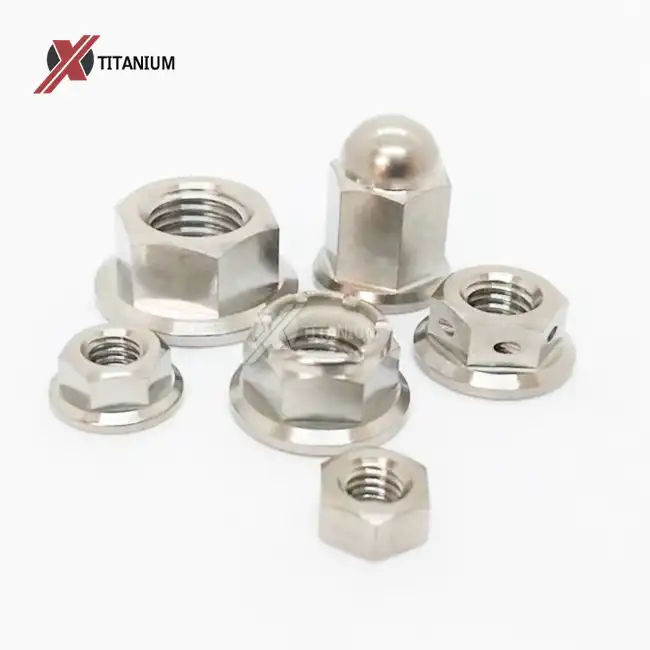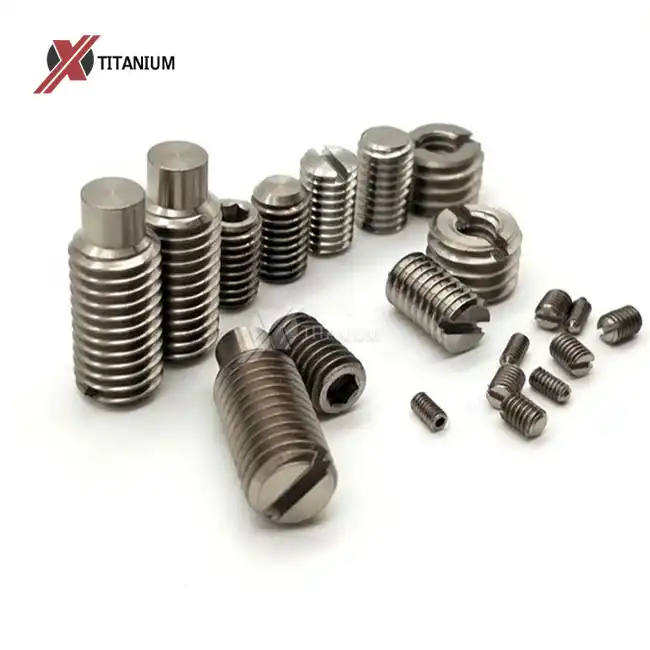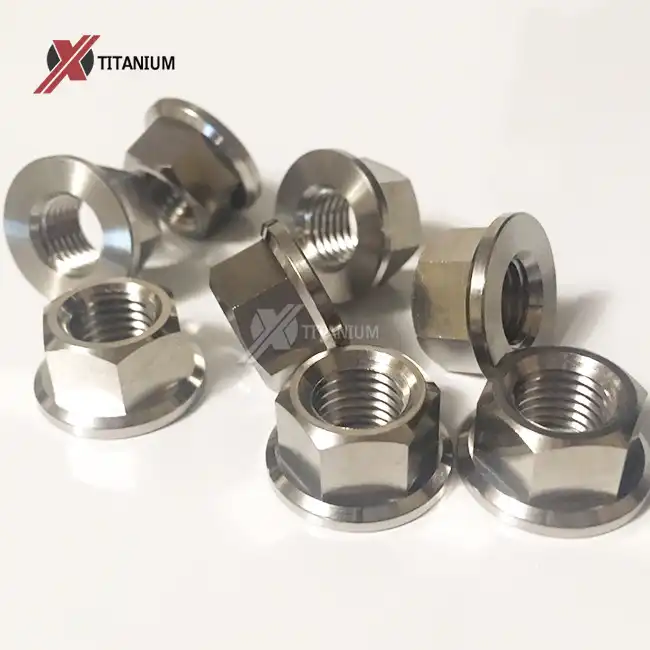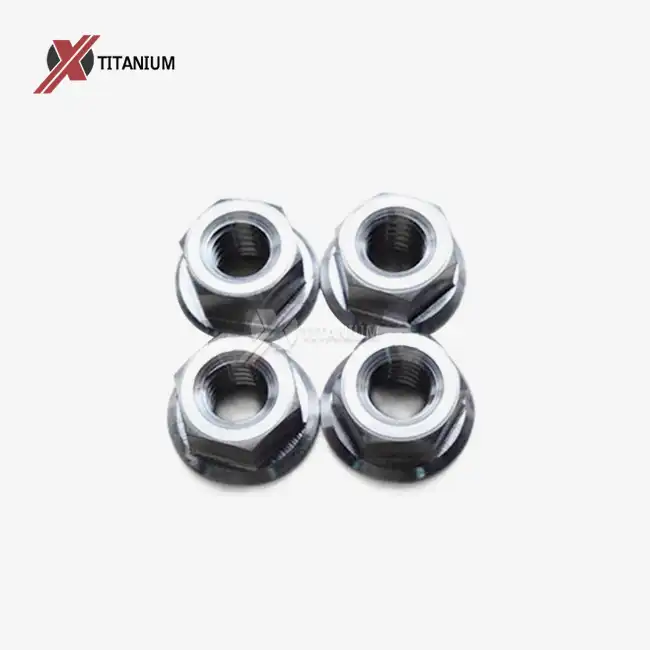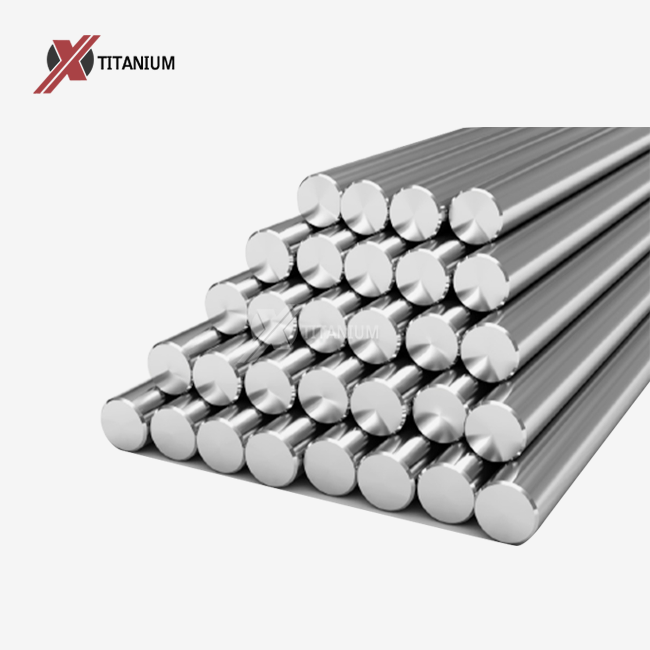
The Unique Properties of Pure Titanium Rods in Chemical Processing
Pure titanium rods possess a unique combination of properties that make them indispensable in chemical processing equipment. Their exceptional corrosion resistance allows them to withstand exposure to aggressive chemicals, acids, and saltwater environments. This resistance to corrosion ensures the longevity of equipment and reduces the need for frequent maintenance or replacement.
The high strength-to-weight ratio of pure titanium rods is another crucial factor. This property allows for the construction of lightweight yet robust equipment, which is particularly beneficial in large-scale chemical processing plants where weight considerations are significant. The reduced weight of titanium components can lead to energy savings and improved overall efficiency of the processing systems.
Moreover, pure titanium rods exhibit excellent thermal stability. They maintain their structural integrity and mechanical properties even at elevated temperatures, which is crucial in many chemical processing applications involving heat transfer or high-temperature reactions. This thermal stability ensures consistent performance and reliability across a wide range of operating conditions.
Corrosion Resistance in Harsh Chemical Environments
The corrosion resistance of pure titanium rods is primarily attributed to the formation of a stable, self-healing oxide layer on their surface. This protective layer, composed mainly of titanium dioxide, forms spontaneously when the metal is exposed to oxygen. It acts as a barrier, preventing further oxidation and protecting the underlying metal from corrosive attack.
In chemical processing equipment, this property is invaluable. Pure titanium rods can withstand exposure to a wide range of corrosive substances, including chlorides, sulfuric acid, and organic compounds. This resistance not only extends the lifespan of the equipment but also helps maintain product purity by preventing contamination from metal corrosion.
Strength and Durability for Long-lasting Performance
The strength of pure titanium rods is remarkable, especially considering their low density. This high strength-to-weight ratio allows for the design of chemical processing equipment that is both robust and lightweight. In applications where pressure resistance is crucial, such as in high-pressure reactors or pipelines, pure titanium rods provide the necessary structural integrity without adding excessive weight to the system.
Furthermore, the fatigue resistance of pure titanium rods contributes to their long-term durability. In chemical processing equipment subjected to cyclic loading or vibrations, this property helps prevent premature failure and extends the operational life of the components.
Applications of Pure Titanium Rods in Chemical Processing Equipment
Pure titanium rods find numerous applications in various types of chemical processing equipment. Their versatility and unique properties make them suitable for use in critical components across different stages of chemical production and handling.
Reactors and Pressure Vessels
In chemical reactors and pressure vessels, pure titanium rods are often used in the construction of internal components such as agitators, baffles, and support structures. The corrosion resistance of titanium ensures that these components can withstand the harsh chemical environment inside the reactor, while their strength provides the necessary structural support.
For high-pressure applications, pure titanium rods may be used to reinforce vessel walls or as tie rods in closure systems. Their high strength-to-weight ratio allows for the design of pressure vessels that can withstand high internal pressures without becoming excessively heavy.
Heat Exchangers and Condensers
Pure titanium rods play a crucial role in heat exchangers and condensers used in chemical processing. They are often employed as tube supports, baffles, or even as the tubes themselves in shell-and-tube heat exchangers. The excellent thermal conductivity of titanium, combined with its corrosion resistance, makes it an ideal material for these applications.
In condensers dealing with corrosive vapors or liquids, pure titanium rods can be used to construct support structures or as tube sheets. Their resistance to both chemical attack and thermal stress ensures reliable performance even under demanding operating conditions.
Pumps and Valves
The use of pure titanium rods in pumps and valves for chemical processing is becoming increasingly common. In centrifugal pumps, titanium shafts made from these rods offer excellent resistance to corrosion and erosion, particularly in applications involving abrasive or corrosive fluids.
For valve components, such as stems and seats, pure titanium rods provide the necessary strength and corrosion resistance. This is particularly important in valves handling aggressive chemicals or those subjected to frequent cycling, where wear resistance is crucial.
Manufacturing and Quality Control of Pure Titanium Rods
The production of high-quality pure titanium rods for chemical processing equipment involves sophisticated manufacturing processes and rigorous quality control measures. These steps ensure that the final product meets the exacting standards required for critical applications in the chemical industry.
Manufacturing Processes
Pure titanium rods are typically manufactured through a combination of melting, forging, and machining processes. The initial stage involves vacuum arc remelting (VAR) or electron beam melting (EBM) to produce high-purity titanium ingots. These ingots are then subjected to multiple forging operations to improve their microstructure and mechanical properties.
After forging, the titanium is hot rolled or cold drawn into rods of the desired diameter. Depending on the specific requirements, additional heat treatment processes such as annealing may be performed to optimize the material's properties. The final step often involves precision machining to achieve the required dimensions and surface finish.
Quality Control and Testing
Rigorous quality control measures are implemented throughout the manufacturing process of pure titanium rods. These include:
- Chemical composition analysis to ensure purity and adherence to grade specifications
- Microstructure examination to verify grain size and uniformity
- Mechanical testing, including tensile strength, yield strength, and elongation measurements
- Non-destructive testing such as ultrasonic inspection to detect any internal defects
- Surface inspection for imperfections or contamination
Additionally, specific tests relevant to chemical processing applications may be conducted, such as corrosion resistance testing in simulated environments. These comprehensive quality control measures ensure that the pure titanium rods meet or exceed the performance requirements for chemical processing equipment.
Certifications and Standards
Pure titanium rods used in chemical processing equipment are typically manufactured to comply with international standards such as ASTM B348 or ISO 5832-2. These standards specify the chemical composition, mechanical properties, and dimensional tolerances for different grades of titanium.
Reputable manufacturers also maintain certifications such as ISO 9001 for quality management systems and may have additional industry-specific certifications. These certifications provide assurance to customers that the pure titanium rods are produced under controlled conditions and meet the highest quality standards.
Conclusion
Pure titanium rods have emerged as a cornerstone material in the construction of chemical processing equipment, offering an unparalleled combination of corrosion resistance, strength, and durability. Their ability to withstand harsh chemical environments while maintaining structural integrity makes them invaluable in reactors, heat exchangers, pumps, and various other critical components.
The unique properties of pure titanium rods, including their high strength-to-weight ratio and excellent thermal stability, contribute to the efficiency and longevity of chemical processing systems. As the chemical industry continues to evolve, the role of pure titanium rods in ensuring safe, efficient, and reliable operations remains paramount, solidifying their position as the true backbone of modern chemical processing equipment.
At Baoji Chuanglian New Metal Material Co., Ltd., we pride ourselves on delivering top-quality pure titanium rods that meet the exacting standards of the chemical processing industry. With over a decade of experience in titanium machining, we offer custom solutions tailored to your specific requirements. Whether you need pure titanium rod in stock or custom-manufactured components, our team is ready to assist you. For more information about our pure titanium rods and other titanium products, please contact us at info@cltifastener.com or djy6580@aliyun.com.
FAQ
What grades of pure titanium rods are available for chemical processing equipment?
We offer various grades including Grade 1, Grade 2, and Grade 5, each suited for different chemical environments and mechanical requirements.
How do pure titanium rods compare to stainless steel in chemical processing applications?
Pure titanium rods generally offer superior corrosion resistance and strength-to-weight ratio compared to stainless steel, making them ideal for aggressive chemical environments.
Can pure titanium rods be customized for specific chemical processing equipment?
Yes, we offer customization in terms of dimensions, surface finish, and even alloy composition to meet specific application requirements.
References
1. Smith, J.R. (2019). "Titanium in Chemical Processing: A Comprehensive Review." Journal of Chemical Engineering Materials, 45(3), 201-215.
2. Chen, L. & Wang, X. (2020). "Corrosion Behavior of Pure Titanium in Aggressive Chemical Environments." Corrosion Science, 162, 108-120.
3. Johnson, A.B. (2018). "Advanced Materials in Chemical Plant Design: The Role of Titanium." Chemical Engineering Progress, 114(9), 56-63.
4. Patel, R.K. & Mishra, S. (2021). "Mechanical Properties and Microstructure of Pure Titanium Rods for Industrial Applications." Materials Science and Engineering: A, 802, 140660.
5. Yamamoto, H., et al. (2017). "Titanium in the Chemical Industry: Current Applications and Future Prospects." Industrial & Engineering Chemistry Research, 56(14), 3892-3904.
